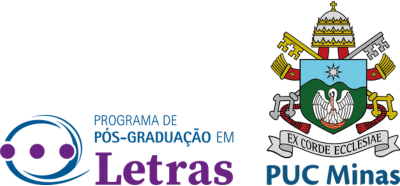Demediatization, Infodemia and fake news in digital culture
DOI:
https://doi.org/10.5752/P.2358-3428.2021v25n54p40-67Keywords:
Infodemic. Fake News. Demediatization. Agonistic. Digital Culture.Abstract
In this article, I discuss the phenomenon of demediatization (HAN, 2017; 2018) and its direct relationship with the information pandemic (Infodemia) and the age-old social practice, with a political and economic basis, of disseminating false news (modernly known as fake news) as a consequence of the popularization of disruptive opinions propagated by digital culture. Based on Mouffe (2015) antagonistic approach – which recognizes the ineradicability of the conflicting dimension of social life, I propose to look at the spread of fake news, both in the media and on social networks, from an ideological dimension of drive forces that mobilizes passions and beliefs; creates myths and fantasies supported by a morality forged in the antithetical narrative of we/them. For this, I analyze two distinct enunciative contexts: the first refers to the disclosure by the media, in 2011, the first year of Dilma Rousseff (PT) term, of the news that the MEC approved the distribution of teaching material that defends and encourages mistakes in verbal agreement in Portuguese language teaching; the second, ten years later, in 2021, in the administration of Jair Bolsonaro (no party), the news of the electoral reform proposal, presented by the Chamber of Deputies, which makes it difficult for digital platforms to punish candidates who disseminate fake news in the 2022 elections Such events explain how demediatized narratives sustain and recreate the structural antagonism as the foundation point of modern societies and are leveraged in digital culture.
Downloads
References
DUSSEL. E. 20 Teses de Política. São Paulo: Expresso Popular, 2007.
FOUCAULT. M. Microfísica do poder. 26 ed. Rio de Janeiro: Edições Graal, 2008.
HAN. B. No enxame perspectivas do digital. Petrópolis-RJ: Vozes, 2018.
HAN. B. Sociedade da transparência. Petrópolis-RJ: Vozes, 2017b.
HAN. B. Sociedade do cansaço. Petrópolis-RJ: Vozes, 2017a.
HEGEL, G.W.F. Fenomenologia do Espírito. Trad. Paulo Menezes. 2. ed. Petrópolis: Vozes, 2002.
LACAN, J. O Simbólico, o Imaginário e o Real. Em Nomes-do-Pai. Rio de Janeiro: Jorge Zahar, 2005.
MARX, K.; ENGELS, F. A ideologia alemã. São Paulo: Martins Fontes, 2007
MOUFFE. C. Sobre o político. São Paulo: Martins Fontes, 2015.
PEREZ, D. O. O populismo, a massa e a afetividade. CONJECTURA: filosofia e educação, v. 23, n. Especial, p. 171-196, 2018.
Downloads
Published
How to Cite
Issue
Section
License
By submitting any manuscript (articles, reviews, or interviews) authors automatically assign full copyrights to PUC Minas. Authors are requested to ensure:
• The absence of conflicts of interest (relations between authors, companies/ institutions or individuals with an interest in the topic covered by the article), as well as funding agencies or sponsoring institutions of the research that culminated in the article.
This file is licensed under the Creative Commons Attribution - Share Alike 4.0 International.









